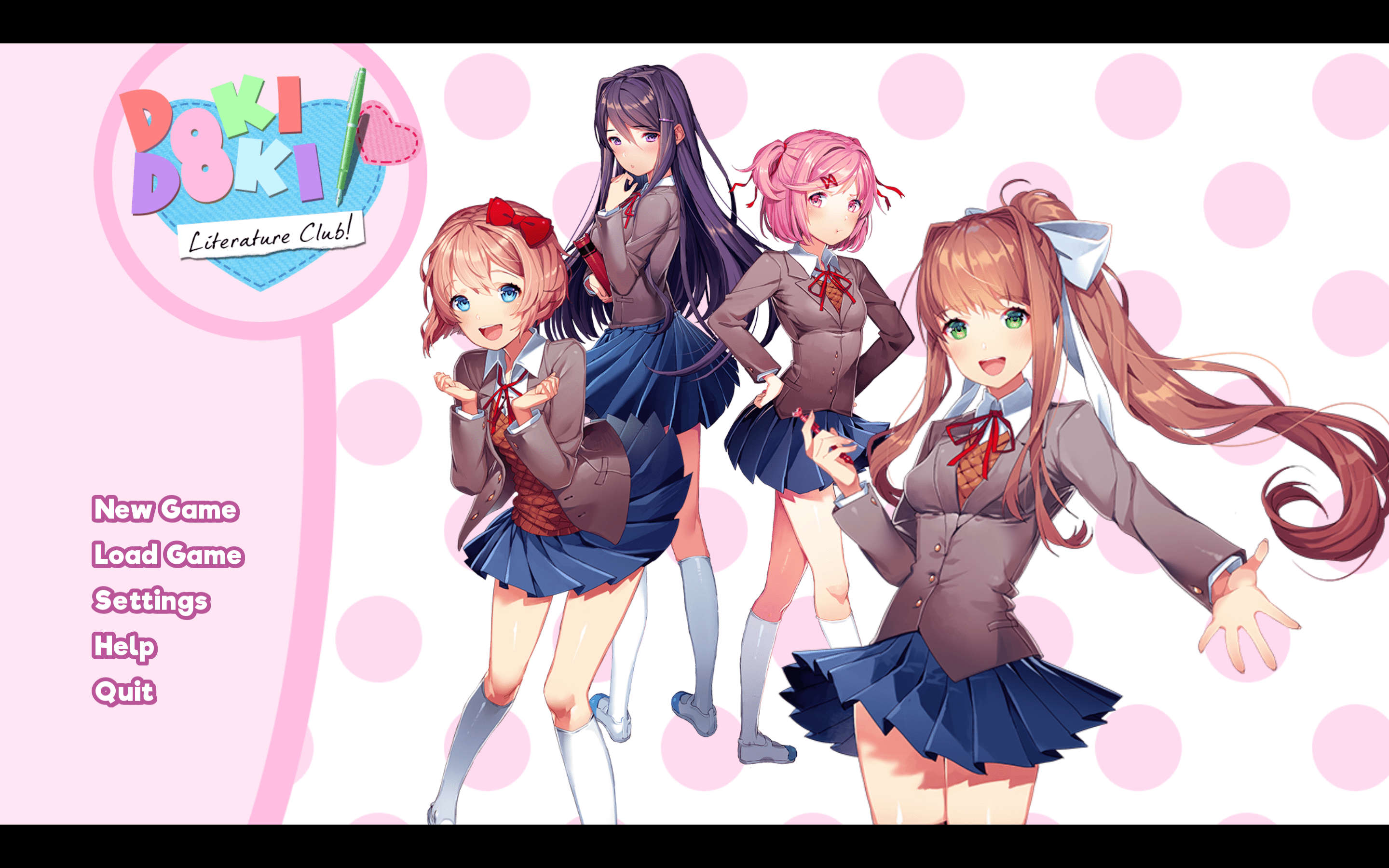
On first glance, Doki Doki Literature Club presents itself as an anti-feminist game. The NPCs Sayori, Monika, Yuri, and Natsuki are anime school-girls with impossibly small waists and ludicrously large bosoms, all dressed in tight school-girl uniforms. As a player, you are immediately onboarded as a MPC that keeps getting distracted by the “club full of pretty girls.” The protagonist continuously calls the NPCs “beautiful girls” and “cute girls,” making it clear that Doki Doki is a fetishized fantasy-world rooted in the male gaze. Just as I was about to turn off the game in frustration, the cute facade of the game disintegrates to reveal dark themes of suicide, mental illness, and abuse. In addition to these elements of horror, the game became sentient with the final act of the game requiring the player to manually enter the game’s directory and delete characters. This shocking subversiveness of the “narrative middle” and limited agency of the player make Doki Doki Literature Club a challenging feminist game.
According to Shira Chess in “Play like a feminist,” video games suggest a space where structurally, they have a queer and feminist potential. In line with feminist theory, Doki Doki rejects the heteronormative, strongly masculine, and “orgasmic” structure of traditional narratives that result in a climatic conclusion. Instead, the narrative of Doki Doki perverts this expectation by existing within the pleasure of delay. Much of the game is spent clicking through long lines of dialogue without taking any action. When there are significant plot developments (like Sayori and Yuri’s suicides), the player does not know whether this is the climax or not. The game feels decidedly feminist within this structure because the player is continuously denied any indication of narrative resolution, placing the game in a never-ending narrative middle. The aesthetic “fun” of the game is discovery of the narrative (enacted narrative) which pushes the medium to invite more diverse players.
The limited agency within the mechanics of Doki Doki offers what Chess describes as “a kind of realism for rethinking the role and weight of choices as well as power in our lives.” For a significant portion of the game, the player only has one interaction loop— pressing the skip button to the next dialogue sequence. The player has no ability to impact the way the narrative unfolds. When elements of horror are introduced and the player can finally take new action like manually enters the game’s directory and deletes Monika’s character file to explore either one of two possible endings, the player still doesn’t significantly change the course of the game. If you decide not to delete Monika, her manipulative and selfish qualities persist in her character. If you decide to delete Monika, her manipulative and selfish qualities are adopted by Sayori. In either case, you cannot “win” against these negative ideals, which encourages players “to rethink opportunities of control within a power dynamic.” Because the protagonist is a casted as a man, the lack of agency of the protagonist further subverts the traditional gender structures of the real-world. The sexualization of the female characters by the male protagonist in the beginning of the game is now extremely silly in the context of these dark real-world issues.
As a designer, the duality of the cutesy, school-girl aesthetic with the violence and suicide of the game truly made me reflect on the my own agency to systematically challenge oppressive structures. However, I almost stopped playing this game before the violence was introduced because of how long it took with the same boring interaction of skipping to the next dialogue for the first 30 minutes. Although game designer Dan Salvato most likely used this is as a commentary on limited agency, it became increasingly frustrating as a player. To improve the game and keep players engaged in the “narrative middle,” I’d encourage Salvato to expand player agency as a means to strengthen what Chess calls “emotional affect.” Perhaps the shock of the violence would be more meaningful and significant if players could invest in the male protagonist by writing in dialogue or making more choices about what they read and say in this literature club. To me, I’d feel a stronger subversion of expectation and gaze if I could’ve participated more in how the initial parts of the story unfolded. I imagine a cis man playing this game for all the”surface” reasons— sexy anime girls fawning over the main character— participating with derogatory comments, and then being completely shocked after the narrative turn. This would be such an effective opportunity to educate those least likely to call themselves feminists about feminism. Although this game dragged on due to the double-edged sword of limited agency, it’s provocative storytelling and enacted narrative created a great, thought-provoking feminist game for me.



